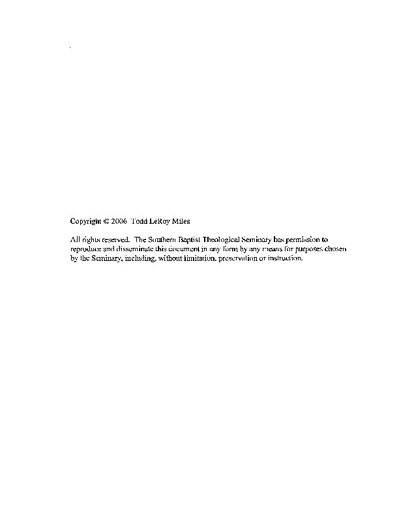| dc.description.abstract | This dissertation evaluates the historiography, methodology, exegesis, and theological conclusions of pneumatological inclusivists and their doctrine of salvation, and then offers a biblical and theological defense of soteriological exclusivism based on the relationship between the Son and the Spirit. Chapter 1 defines the categories of exclusivism, inclusivism, and pluralism. Attention is given to those inclusivists who ground their inclusivist proposals in a work of the Holy Spirit in world religions apart from Gospel proclamation.
Chapter 2 summarizes the work of non-evangelical inclusivists in the area of theology of religions, with particular attention given to those theologians who focus their work on the person and ministry of the Holy Spirit.
Chapter 3 summarizes the work of evangelical pneumatological inclusivists, focusing on the efforts of Clark Pinnock and Amos Yong.
Chapter 4 evaluates the historiography of pneumatological inclusivists. The chapter contends that any appeals to the theology of Irenaeus or a rejection of the Fifoque clause to bolster support for pneumatological inclusivism are tendentious.
Chapter 5 evaluates the theological method of pneumatological inclusivists. The chapter argues that systematic theological conclusions must be based upon solid exegesis and biblical theology. The Bible presents the Spirit as working to glorify the Son. Theological method ought to reflect this priority, that is, it must be Christocentric.
Chapter 6 presents a theology of the Son and the Spirit. It is demonstrated that from the beginning of redemptive history, prior to and during the incarnation, the Spirit worked toward and for the glorification of the Son. During the present church age, the Spirit works to glorify Christ.
Chapter 7 summarizes the dissertation and highlights areas of contribution and significance. | en_US |

